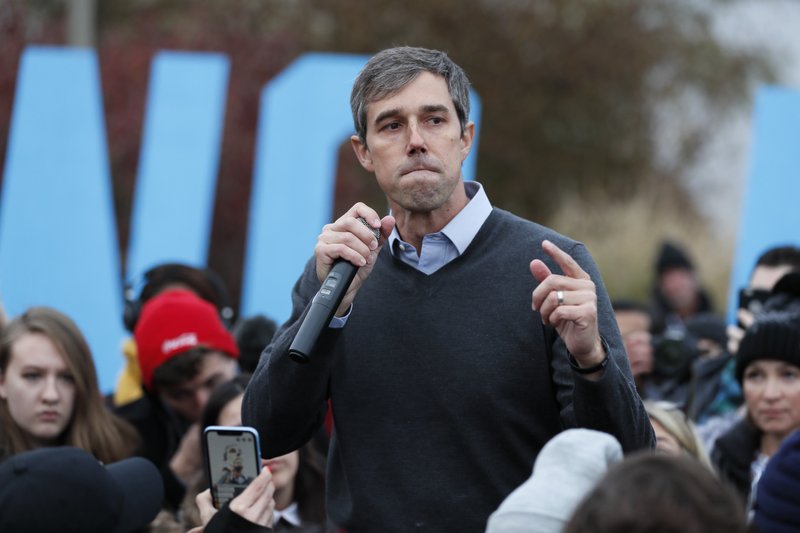WASHINGTON -- Beto O'Rourke, the former Texas congressman, announced Friday that he was ending his Democratic presidential campaign, which failed to recapture the enthusiasm, interest and fundraising prowess of his 2018 Senate race.
Addressing supporters in Iowa, O'Rourke said he made the decision "reluctantly" and vowed to stay active in the fight to defeat President Donald Trump. "I will be part of this and so will you," he said.
O'Rourke was urged to run for president by many Democrats, including supporters of former President Barack Obama, who were energized by his narrow Senate loss last year in Texas, a reliably Republican state. He raised a record $80 million from donors across the country, visited every county in Texas and used social media and livestreaming video to engage directly with voters. He ultimately lost to incumbent Republican Sen. Ted Cruz by 3 percentage points.
But O'Rourke, 47, struggled to replicate that model in the presidential primary, and both his polling and his fundraising dwindled significantly in recent months.
"We have to clearly see, at this point, that we did not have the means to pursue this campaign successfully and that my service will not be as a candidate, nor as a nominee of this party for the presidency," O'Rourke said.
O'Rourke's decision comes as the Democratic primary enters a critical stretch. With three months until the kickoff Iowa caucuses, polls consistently show a trio of candidates leading the way: former Vice President Joe Biden, Massachusetts Sen. Elizabeth Warren and Vermont Sen. Bernie Sanders, with Pete Buttigieg, the mayor of South Bend, Indiana, showing strength in Iowa, as well. Lower polling candidates face difficult questions about whether they have the money to sustain a campaign through the first primary contests.
Earlier this week, Kamala Harris, another candidate who entered the race to much fanfare, announced she was downscaling her campaign, laying off some staffers and reorienting almost exclusively to focus on Iowa.
O'Rourke entered the race as the feel-good, dynamic candidate who had the ability to appeal to both Republicans and Democrats and work across the aisle in Washington.
But he immediately faced criticism that he had a sense of entitlement, particularly after the release of a Vanity Fair interview on the eve of his campaign launch in which he appeared to say he was "born" to be in presidential politics.
After quickly pulling in $9.4 million during his first two weeks in the race, O'Rourke's financial situation deteriorated. By the end of June, he was spending more than his campaign was taking in. By the end of September, he had just $3.2 million cash on hand while spending double that over the previous three months, campaign finance records show.
National on 11/02/2019